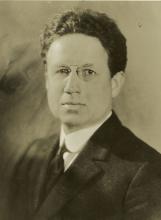modernity

If you’ve been reading our blog or have checked your iTunes last week you’ve noticed the power couple of Steve Jobs’ ghost and Bono working together again. (Anyone rememberthe U2 iPod?) I’ll leave it up to music critics to debate the musical quality of the album and the potential violation of the now infamous iCloud downloading music for each Apple user. But there is one other issue to discuss regarding the U2’s recent release: God.
In a recent article published by The New Yorker, author Joshua Rothman takes an in-depth look into the spirituality of what some would call the world’s most popular rock band. Throughout the years, Bono’s religious roots have not been a secret. Books such as Get Up Off Your Knees: Preaching the U2 Catalog and We Get to Carry Each Other: The Gospel according to U2 have been published within the last decade. The Archbishop of Canterbury has addressed Bono in lectures and Bono has preached at the National Prayer Breakfast.
One of the most interesting aspects of Rothman’s article was the citing of “churches around the world celebrating U2charists.” Churches as far as the Netherlands, Austria, Mexico, and as close as Iowa, Baltimore, and Maine have celebrated U2charists, a communion service accompanied by U2 songs in lieu of traditional hymns. Rev. Paige Blair, of St. George’s Episcopal Church of Maine, was one of the first religious leaders to host such a service. According to Rev. Blair:
“the liturgy itself is pretty traditional — it has all the usual required elements: a Gospel reading, prayers, and communion from an authorized prayer book. The music is really what is different. And yet, not so different. It is rock 'n roll, but it is also deeply and overtly spiritual.”

SUMMER IS READNG time and there’s nothing I like more during the warm months than delving into geeky works on religion. This summer, Peter L. Berger and Brian D. McLaren have topped my list.
In a set of recent essays, Berger emphasizes that relativism and fundamentalism are two of the most prominent religious paths in the world today. Here’s my one line definition of fundamentalism: “Being me is based on dominating you.” And my simple definition of relativism: “I no longer know who I am when I encounter you.”
For Berger, while relativism and fundamentalism are at opposite extremes, they are actually closely connected in that they are both “products of the same proc-ess of modernization.” As he first wrote decades ago in his book The Heretical Imperative, frequent and intense encounters between people with different identities is the signature characteristic of the modern era. In Berger’s pithy phrase: modernity pluralizes.
Berger continues, “pluralism relativizes ... both institutionally and in the consciousness of individuals.” In the pre-modern era, institutions, ideas, and identities had a largely taken-for-granted status. For most of human history, the vast majority of humankind had little to no choice about which institutions they were going to participate in or what their identities were going to be. Such matters were experienced as fate.

Much of Westernized Christianity’s recent decline has been blamed on the failure of churches and denominations to adapt to modern times — either becoming irrelevant or, contrarily, becoming too commercialized and “fake,” creating a superficial form of faith that drives parishioners away from institutionalized religion.
Lost in the conversation is a much deeper issue, one that revolves around losing confidence in the Bible.
For years churches have glossed over, rationalized, and provided shallow answers to thorny Biblical problems that are no longer being ignored — and it’s becoming harder to defend texts that appear contradictory and culturally irrelevant.

Okay... for all my friends out there. No, history does not repeat itself. Yes, history is a human construct. Now, if you will all just work with me, take a gander at this longish quotation from the Introduction to The Meaning of Prayer (1916) by Harry Emerson Fosdick (pictured here). The introduction was written by John R. Mott. It could have been written last week.
These meditations and studies on prayer are most timely. Never have there been such extensive and such convincing evidences of the poverty and inadequacy of human means and agencies for furthering the welfare of of humanity; never has there been such a widespread sense of the need of superhuman help; never have there been such challenges to Christians to undertake deeds requiring Divine cooperation; never has there been such a manifest desire to discover the secret of the hiding and of the releasing of God's power. Interest in prayer is world-wide. This is shown in the prominence of this subject in addresses and sermons in all lands, as well as by the growing volume of books and pamphlet literature in different languages. The multiplication of Calls to Prayer and of Prayer Circles, and the formation of Prayer Bands and of Leagues of Intercession, constitute similar testimony. Among Christians everywhere, and even among those who would not call themselves believing Christians, there is being manifested an earnest desire to understand what prayer is and to engage more fully in its exercise.
... An alarming weakness among Christians is that we are producing Christian activities faster than we are producing Christian experience and Christian faith; that the discipline of our souls and the deepening of our acquaintance with God are not proving sufficiently thorough to enable us to meet the unprecedented expansion of opportunity and responsibility of our generation. These studies and spiritual exercises in helping men and women to form that most transforming, most energizing, and most highly productive habit — the habit of Christlike prayer — will do much to overcome this danger.